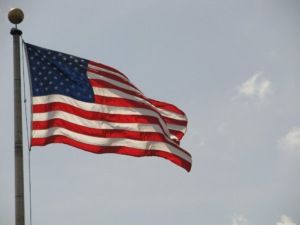News
US Secretary of State Pompeo to visit Denmark
This article is more than 5 years old.
Pompeo says the Arctic is important for the US as China and Russia present ‘challenges’ and ‘militarise’ the region

Pompeo will visit Denmark on July 22 (photo: pixabay)
The foreign minister, Jeppe Kofod, will meet with US Secretary of State Mike Pompeo when he visits Copenhagen on July 22, the Ministry of Foreign Affairs said.
Prime Minister Mette Frederiksen will also host Pompeo at Marienborg.
Focus on global issues
During the visit, Pompeo and Kofod will discusss a wide range of topics.
“It gives us a unique opportunity to talk about global issues of common interest such as security, trade and the importance of the COVID-19 pandemic for international cooperation,” said Kofod.
Pompeo expressed enthusiasm about his visit to Denmark.
“Excited to travel to London and Copenhagen to meet with counterparts on a range of important issues, including COVID-19 recovery and global security,” he said on Twitter.
According to Reuters, Pompeo said that China’s treatment of Hong Kong as well as its “threat to free peoples around the world” will also be high on the agenda of his visit to Denmark and the UK.
Arctic matters to be highlighted
Greenland’s minister of foreign affairs, Steen Lynge, and the Faroese minister of foreign affairs and education, Jenis av Rana, have also been invited to participate in the discussions.
“Since we also have to discuss Arctic matters, my colleagues from Greenland and the Faroe Islands surely must sit at the table as well. I personally find it crucially important,” Kofod said.
Pompeo’s visit comes a month after the US reopened a consulate in Greenland, which President Donald Trump expressed interest in buying last year.
Challenges from China and Russia
Speaking in Washington, Pompeo said that the Arctic region is important for the US.
“They’re related to the challenges that China is presenting, the militarization of the Arctic that China and Russia are presenting. And we think it’s important that the United States as an Arctic nation is active and engaged, and we think putting that facility there will help us do that,” Pompeo said.
The last time a US Secretary of State visited Denmark was in 2016. Kofod and Pompeo last met in the US in 2019.










































